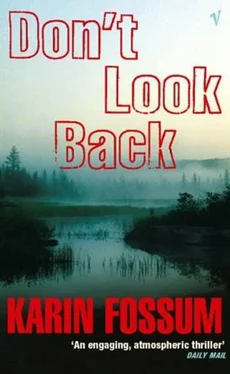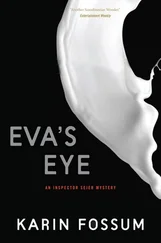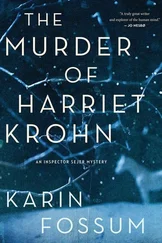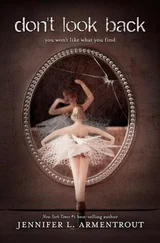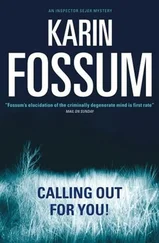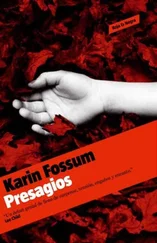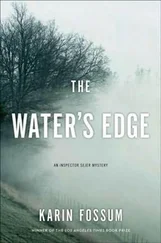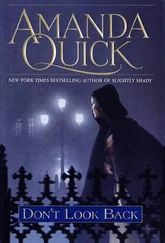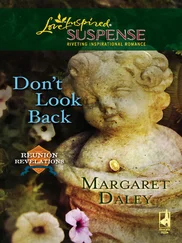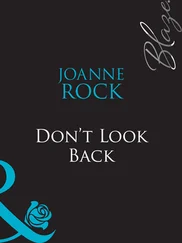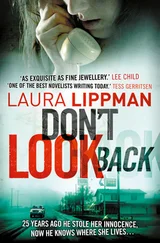The other man wasn't smiling any more. He stared intently at the stout man in the grey coat, and considered what it must have cost him in pride to say what was on his mind. People had all kinds of reasons for wandering around among the graves. He never risked making a blunder.
"It's an important decision, I think. Something to take your time over. Most people ought to think more than they do about their death."
"Yes, don't you think so?" Holland looked relieved. He pulled his hands out of his pockets and waved them around a little. "But a person might be reluctant to dig around in such topics." He gave a start at his choice of words. "He might be afraid of being considered strange, or not altogether sane… if he wants to find out something about the cremation process, what goes on."
"Folks have the right to know," the superintendent said simply, moving off a few steps. "It's just that no one ever asks. Or they don't want to know. But if a few people do want to know, I can fully understand why. We could go inside and I could explain things, if you like?"
Holland nodded gratefully. He felt comfortable in the company of this friendly man. A man of his own age, of lean build, with thinning hair. They strolled up the paths together, the gravel crunching softly under their feet, and the breeze caressing Holland's head like a consoling hand.
"It's all quite simple, actually," the superintendent said. "But first I should tell you, for the sake of good order, that the entire casket containing the deceased is put into the oven. We have special caskets for cremation. Everything is made of wood, including the handles and everything else. Just so you don't think that we lift out the deceased and place him or her in the oven without the casket. But maybe that's not what you thought. Most people have seen enough American movies to know," he said with a smile.
Holland nodded and clenched his fists again.
"The oven is quite large. We have two of them here. They run on electricity, and with the help of gas, they create a powerful furnace. The temperature reaches almost two thousand degrees Celsius."
He looked up and smiled, as if he wanted to catch a few faint rays of sun.
"Everything that the deceased is wearing in the casket ends up in the oven. Also jewellery or things that don't burn but are placed in the urn afterwards. We remove pacemakers and surgical bolts or splints. When it comes to precious metals, you may have heard rumours that they end up elsewhere. But you mustn't believe that," he said firmly. "You really mustn't believe that."
They were approaching the door to the crematorium.
"Bones and teeth are ground up in a mill into a fine, almost sand-like, greyish powder."
The moment the man mentioned the part about the mill, Eddie thought about her fingers. Her delicate, slender fingers with the little silver ring. Horrified, he curled up his own fingers inside his pockets.
"We monitor the whole process, to check on how far along it has progressed. The oven has glass doors. After about two hours everything is swept out of the oven, forming a small heap of fine ash, a lot smaller than people might think."
Monitor the process? Through the glass door? Could they peek inside and look at what was inside - look at Annie as she burned?
"I can show you the ovens, if you like."
"No, no!"
He pressed his arms tight to his sides, trying desperately to hold them still.
"The ash is very clean, practically the cleanest thing that exists. Looks like fine sand. In the old days the ash was used for medicinal purposes. Did you know that? Among other things, it was applied to eczema with good results, or even ingested. It contains salts and minerals, but we filter it into an urn. I'll show you one so you can see how they look. You can select your urn, they come in many shapes. We prefer a standard urn, and that's what most people choose. It is closed and sealed and then placed in the grave through a small shaft. We call this ceremony the 'burial of the urn'."
He held open the door for Holland, who stepped into the dimly lit building.
"In reality it's nothing more than a hastening of the natural process. Cleaner, in a way. We are all going to return to ashes, but with a traditional burial it's quite a lengthy process. It takes about 20 years, sometimes 30 or 40, depending on what kind of soil we're talking about. In this area there's a lot of sand and clay, so it takes longer."
"I like that," said Holland softly, "'return to ashes'."
"It's true, isn't it? Some people want to be spread to the winds. Unfortunately, that's illegal in this country; we have very strict laws regarding the matter. According to law, each body must be placed in consecrated ground."
"Not a bad idea," Holland said, clearing his throat. "But it's so strange with all the images that go through your mind. When you try to imagine what it's like. If you're buried in the ground, your body decays. And that doesn't sound very nice. But then there's the idea of burning."
Decay or burning, he thought. What choice should he make for Annie?
He paused for a moment, feeling as though his knees were about to buckle, but then he was able to continue, encouraged by the patience of the other man.
"There's something about burning that makes me think of- well, you know – of Hell. And when I picture my girl…"
He stopped abruptly, slowly turning red. The other man stood motionless for a long time, and then finally gave him a pat on the shoulder and said, "You have to make a decision for… your daughter? Is that right?"
Holland bowed his head.
"I think you should take this very seriously. It's like having a double responsibility. It's not easy, no, it's not." He shook his lean face from side to side. "And you should take your time. But if you decide on cremation, you'll have to sign a statement that she never uttered a word of objection. Unless she's under 18, that is, then you can make the decision for her."
"She's 15," he said.
The superintendent closed his eyes for a few seconds. Then he started walking again. "Come with me to the chapel," he said. "I'll show you an urn."
He led Holland down some stairs. An invisible hand had been placed over them, shutting out the rest of the world. They leaned towards each other, the superintendent to lend support, Holland to receive warmth. Downstairs the walls were rough and whitewashed. At the bottom stood a red-and-white floral arrangement, and a suffering Christ stared down at them from the cross on the wall. Eddie pulled himself together. He sensed that his cheeks had regained their colour, and he felt more at ease.
The urns stood on shelves along the walls. The superintendent lifted one down and handed it to Holland. "Go ahead and hold it. Nice, isn't it?"
He touched the urn and tried to envision what had been his daughter, that he was holding her in his arms. The urn looked like metal, but he knew that it was a biodegradable material, and it felt warm in his hands.
"So now I've told you what happens. That's all there is to it, I haven't left anything out."
Eddie Holland ran his fingers over the gold-coloured urn. It did feel good in his hand, with a solid weight to it.
"The urn is porous so that air from the earth can get in and speed up the process. The urn will disappear too. There's something mysterious and grand about the fact that everything disappears, don't you think?"
He smiled with reverence. "And we will too. Even this building, and the paved road outside. But all the same," he said, taking a firm grip on Eddie's arm, "I still like to believe that there's something greater in store for us. Something different and exciting. Why shouldn't there be?"
Holland looked at him, almost in surprise.
"On the outside we put a label with her name on it," he said in conclusion.
Читать дальше
